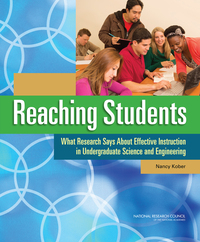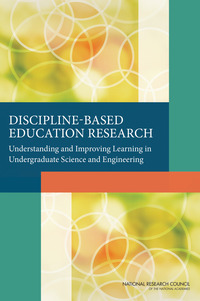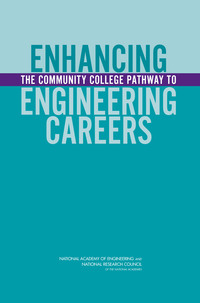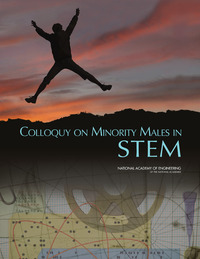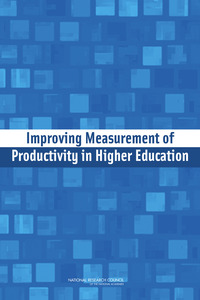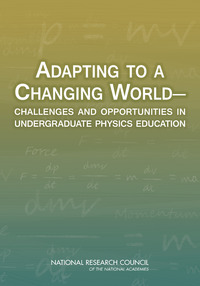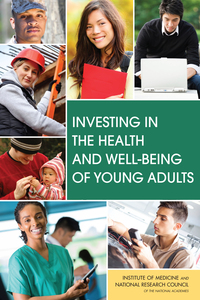As the chart below indicates, STEM education will continue to significantly contribute to the nation’s economy and prosperity. In an environment of increasing tuition and shrinking public funding, the most successful colleges and universities will be the ones that promote excellent teaching and support students as they work toward their degrees. Our reports discuss changing pathways to degrees and methods to improve teaching beyond the lecture hall. All are free to download.
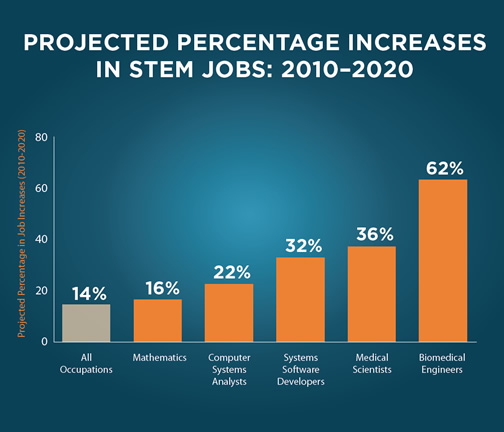
Credit: U.S. Department of Education
The undergraduate years are a turning point in producing scientifically literate citizens and future scientists and engineers. Evidence from research about how students learn science and engineering shows that teaching strategies that motivate …
The National Science Foundation funded a synthesis study on the status, contributions, and future direction of discipline-based education research (DBER) in physics, biological sciences, geosciences, and chemistry. DBER combines knowledge of …
Community colleges play an important role in starting students on the road to engineering careers, but students often face obstacles in transferring to four-year educational institutions to continue their education. Enhancing the Community …
On August 8-12, 2010 the National Academy of Engineering (NAE), with funding from the National Science Foundation (NSF), convened the Colloquy on Minority Males in Science, Technology, Engineering, and Mathematics (STEM), following the release of …
Higher education is a linchpin of the American economy and society: teaching and research at colleges and universities contribute significantly to the nation’s economic activity, both directly and through their impact on future growth; federal …
Adapting to a Changing World was commissioned by the National Science Foundation to examine the present status of undergraduate physics education, including the state of physics education research, and, most importantly, to develop a …
Young adulthood – ages approximately 18 to 26 – is a critical period of development with long-lasting implications for a person’s economic security, health and well-being. Young adults are key contributors to the nation’s workforce and military …
